(JollofNews) – Gambians voted and a winner was declared; the loser conceded but later rejected the results. The loser, incumbent strongman President Yahya Jammeh, is now seeking to have the election overturned in court. Will this dispute create a constitutional crisis in the tiny West African nation? The BBC’s Umaru Fofana explains.
I understand there are no judges…
Filing a petition is one thing – when the Supreme Court will hear the case is a different situation altogether. At present, the Supreme Court is not fully constituted Of the seven-member panel, only the chief justice is in his post. The o
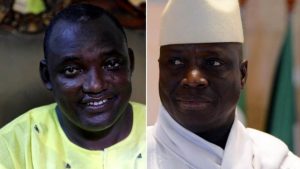
thers are not. Two judges were sacked by President Jammeh in June last year.
President-elect Adama Barrow and his coalition of seven political parties have said The Gambia has not had a functioning Supreme Court for the past year and it would be unacceptable for Mr Jammeh to appoint judges now to preside over this case, as he is an interested party.
A spokesman for The Gambia Bar Association says it is highly unlikely that the court will be able to reach a verdict before Mr Jammeh’s mandate expires on 18 January, stressing that the constitution does not provide for him to remain in office thereafter, even for a single day.
Who does the army back?
Mr Jammeh came to power in a coup in 1994 and has governed with a firm hand ever since. He has held several elections, amid allegations of fraud and intimidation.
So it was something of a surprise when shortly after Mr Jammeh conceded, the coalition said that Gambian Armed Forces chief Ousman Badjie had spoken to the president-elect and pledged his allegiance to him.
However, since Mr Jammeh’s U-turn, the army seems to be taking orders from him.
Gen Badjie reportedly arrived at talks with West African leaders on Tuesday wearing a badge featuring Mr Jammeh’s face on his uniform and told a reporter that it was Mr Jammeh who was paying his wages.
Troops have since seized the headquarters of the Independent Electoral Commission (IEC) – they have not explained why.
Why did Mr Jammeh change his mind?
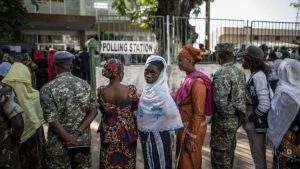
Mr Jammeh said that after conceding victory, it emerged that many of his supporters were turned away when they went to vote on the pretext that the opposition candidate had already won.
He also questioned the IEC’s apparent inconsistency when it revised the results after they had been announced.
The IEC admitted it had erred during the tally.
In one area, the total numbers of votes cast was mistakenly added to the tallies of all candidates.
The IEC insists that Mr Barrow still won but his victory margin had narrowed from 9% to 4%. Mr Barrow got 43.3% of the vote, Mr Jammeh 39.6% and a third candidate, Mama Kandeh, 17.1%, according to the revised figures.
Mr Jammeh pointed to this in his national address but some say the real reason for his change of tune might be talk that he would be prosecuted for alleged human rights abuses.
Was it a mistake to say he would be prosecuted?
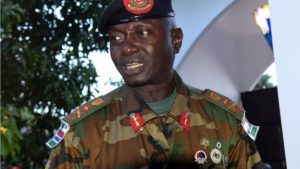
It was not helpful for a senior member of the opposition coalition, Fatoumata Jallow-Tambajang, to have spoken about taking Mr Jammeh to court.
Even though Ms Jallow-Tambajang insisted that she was expressing a personal view, it is hard to draw a line between what she said and what the coalition thinks.
President-elect Barrow has repeatedly refused to say whether his administration will try his predecessor, but in one of the interviews I had with him, he likened the situation to Nelson Mandela’s experience at the hands of the apartheid government in South Africa and his decision not to prosecute his jailers when he became president.
Some MPs in Mr Jammeh’s APRC party I spoke to sounded livid about the prospect of him being prosecuted.
That could have changed attitudes.
An assurance from regional leaders that he would be spared prosecution might be key to reaching a settlement.
Could there be foreign military intervention?
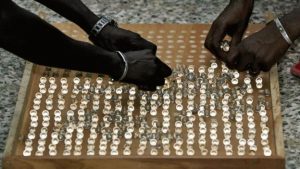
A senior official of the West African regional body, Ecowas, has said it is “possible” that a force will be sent to The Gambia if diplomatic efforts to persuade Mr Jammeh to step down fail.
Fighter jets of neighbouring Senegal have been spotted in the skies in Senegal’s capital, Dakar. Their intentions are, however, unclear.
The two neighbouring states have had very frosty relations under Mr Jammeh.
That notwithstanding, foreign military intervention is unlikely.
Is an economic blockade likely?
The Gambia is a small strip of land surrounded on three sides by Senegal, which could impose an economic blockade, cutting off most imports.
However, diplomats in Senegal say this is not supported by some of the country’s political parties as well as citizens who say it will end up hurting ordinary Gambians and eventually Senegalese businesses.
When is Mr Barrow supposed to be sworn in?
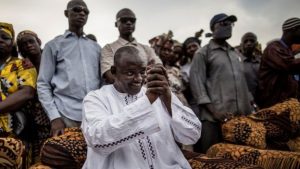
According to The Gambian constitution, a president ceases to be president exactly five years after being sworn in.
Mr Jammeh took the oath of office for the fourth time on 18 January 2012. A new president must, therefore, be sworn in on 18 January 2017.
After the 2011 polls, the losing candidate, Ousainou Darboe, filed a petition to challenge the result but Mr Jammeh was sworn before it had been heard.
So there is a precedent for Mr Barrow to be sworn in while Mr Jammeh is still going to court but it is unlikely that the strongman would agree.


I would like to put this accross to you Gen. Ousman Badjie your salary is paid by gambian people. through tax, our revenue that the government pay us. how ignorance are you. i though you have gone to school to be educated but you are lack of sense and very stupid. even the grade 7 students knows that gambia is a reneue state.